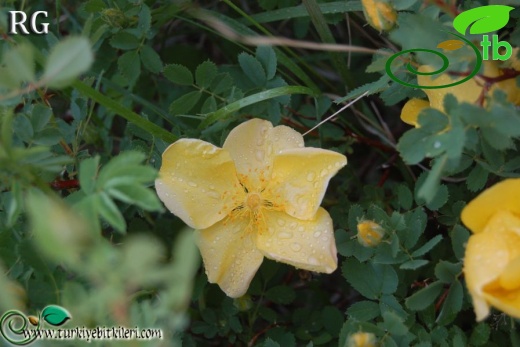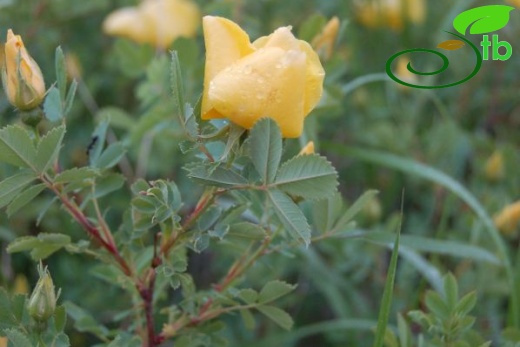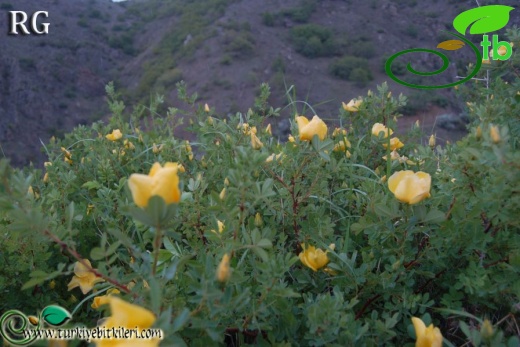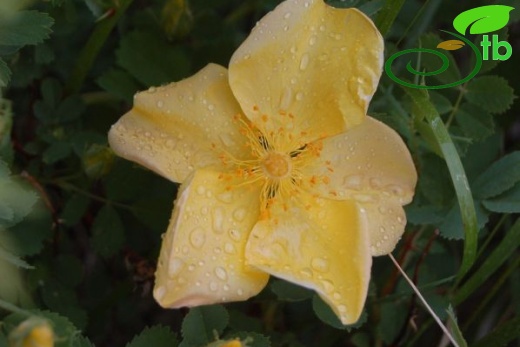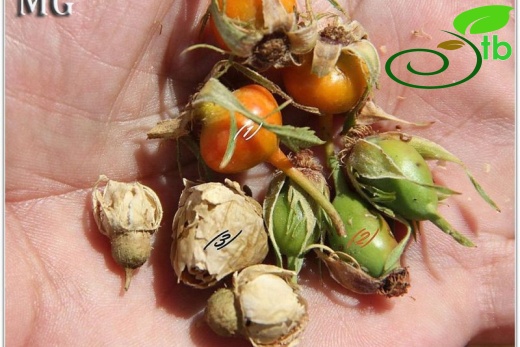Rosa hemisphaerica
Rosa hemisphaerica
Kadıngöbeği
Differs from R. foetida as follows; plant smaller, up to 1,5 m; prickles more abundant, coarse, curved, evenly tapering from a broad base, interspersed with acicles and stiff bristles on young shoots, young shoots with rust-coloured glands, hairs and bristles; leaflets 5-9, obovate, obtuse to retuse with narrowly cuneate base, usually uniserrate but ± entire in basal third, grey-green above, glaucescent and shortly adpressed pubescent beneath; rachis densely glandular; stipules often distinctly toothed; pedicels shorter, 0,5-1 cm; petals narrower and paler in colour; styles less hairy, stigma-head compact; hypanthia 1,2-1,5 cm, deep orange-red. Fl. 5-6. Native in dry habitats, ravines, slopes and banks on limestone and igneous rocks, 800-1800 m; also often cultivated and escaping.
Caucasus, Soviet Azerbaijan & Armenia, N., N.W. & W. Iran. Ir.-Tur. element.


